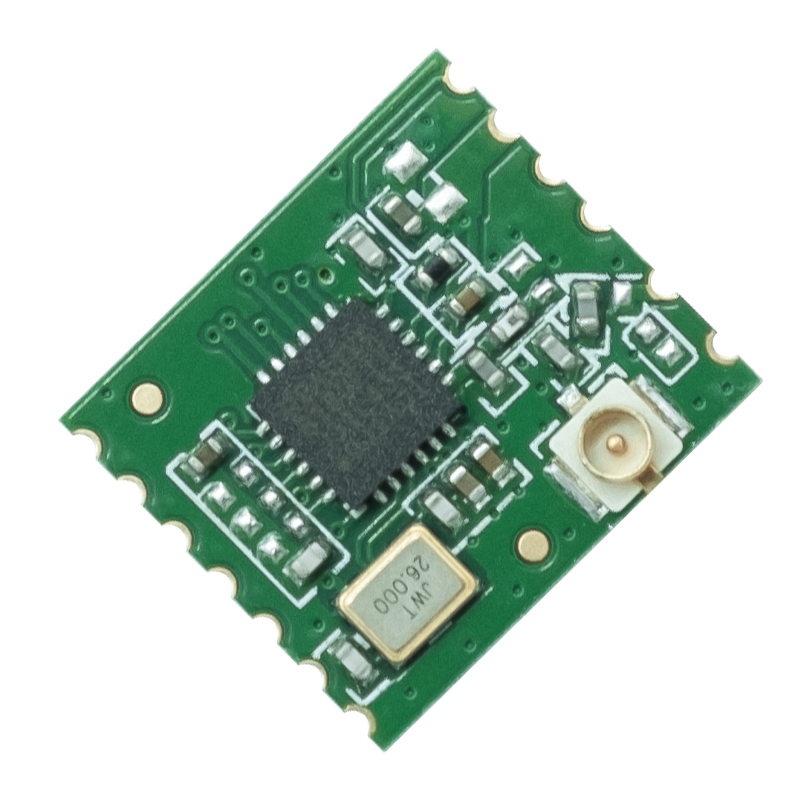
In today's fast-paced digital world, connectivity has become an integral part of our daily lives. The future of connectivity lies in the development and implementation of advanced WiFi modules. WiFi modules, also known as wireless communication modules, are crucial components that enable seamless wireless communication between devices. In this article, we will delve into the in-depth exploration of WiFi modules, discussing their technology, applications, challenges, and the potential they hold for the future.
WiFi modules are compact electronic devices that integrate wireless communication capabilities into various devices and systems. These modules utilize the WiFi protocol to establish reliable and high-speed communication between devices, enabling seamless information exchange. They are typically embedded in devices such as smartphones, tablets, laptops, smart home appliances, industrial automation systems, and IoT devices.
Over the years, WiFi modules have undergone significant technological advancements. The latest WiFi modules support high-speed data transfer rates, improved network bandwidth, and enhanced security protocols. Multiple generations of WiFi standards, such as IEEE 802.11n, 802.11ac, and 802.11ax, have been introduced, each delivering faster and more reliable wireless connectivity.
The advancements in WiFi modules have also led to the development of smaller, power-efficient, and cost-effective modules. This miniaturization allows for their integration into various IoT devices, expanding the possibilities of wireless connectivity in sectors like healthcare, transportation, agriculture, and smart cities.
The applications of WiFi modules are vast and diverse. They play a vital role in enabling wireless communication in smart homes, where they connect devices such as security systems, lighting controls, and smart assistants. WiFi modules are also extensively used in industrial applications, facilitating machine-to-machine communication, remote monitoring, and control systems.
Another prominent application of WiFi modules lies in the realm of wearables and healthcare. WiFi-enabled wearables, such as fitness trackers and smartwatches, rely on these modules to connect and sync data with smartphones, enabling real-time health monitoring and analysis. WiFi-enabled medical devices, on the other hand, enhance healthcare by enabling remote patient monitoring, telemedicine, and efficient data collection.
Despite the numerous advancements, WiFi modules face several challenges. Interference from other wireless devices, limited range, and security vulnerabilities are some of the key challenges that need to be addressed. However, ongoing research and development efforts are focused on overcoming these challenges and paving the way for the future of connectivity.
The future developments in WiFi modules hold immense potential. The emergence of 5G technology, coupled with WiFi 6 (802.11ax), promises faster data transfer speeds and better network efficiency. Additionally, advancements in mesh networking, beamforming, and multi-user MIMO (Multiple-Input Multiple-Output) techniques will further enhance the capabilities of WiFi modules.
The future of connectivity lies in the continuous evolution and improvement of WiFi modules. As technology advances, WiFi modules are expected to play a crucial role in enabling seamless and pervasive wireless communication. From smart homes to healthcare and industrial automation, WiFi modules are revolutionizing the way devices connect and communicate. With ongoing advancements and research, we can expect a future where WiFi modules are more efficient, secure, and seamlessly integrated into every aspect of our lives.
 Trolink Joint With Tuya to Make Iot Benefit Every Family
Trolink Joint With Tuya to Make Iot Benefit Every Family
 5 Key Indicators for WiFi Module Selection You Have to Know !
5 Key Indicators for WiFi Module Selection You Have to Know !
 IOT module is the brain of smart products
IOT module is the brain of smart products
 What is the signal coverage range of the WiFi module chip?
What is the signal coverage range of the WiFi module chip?